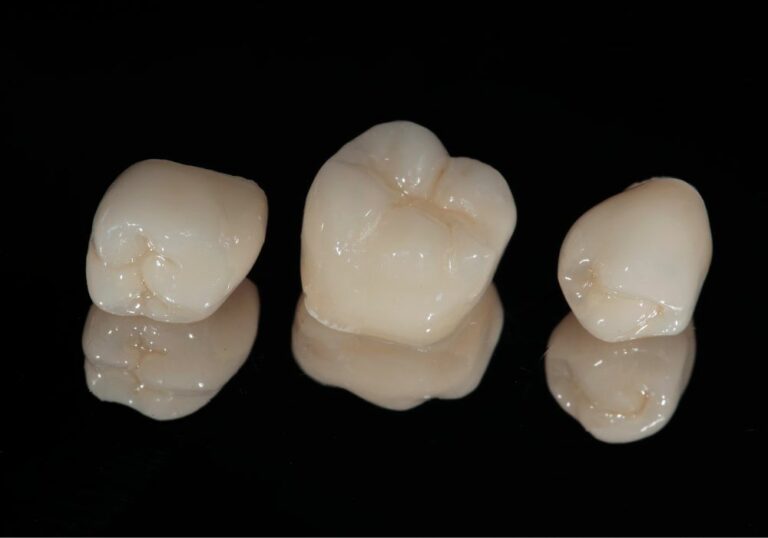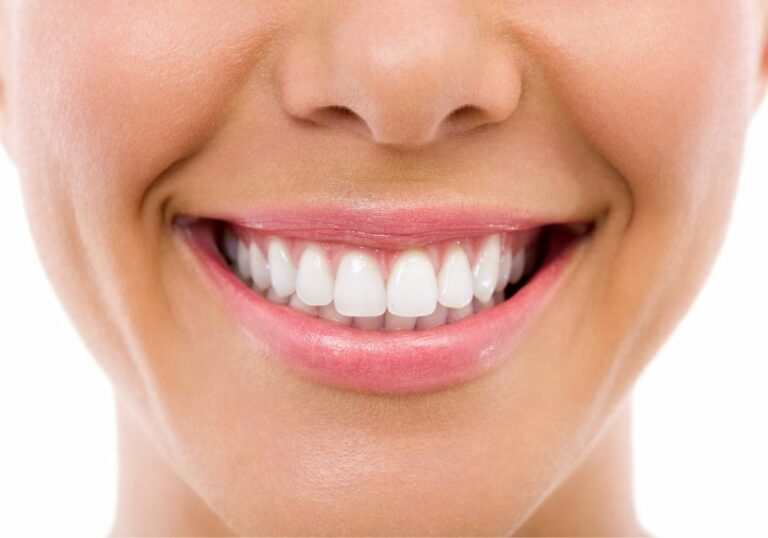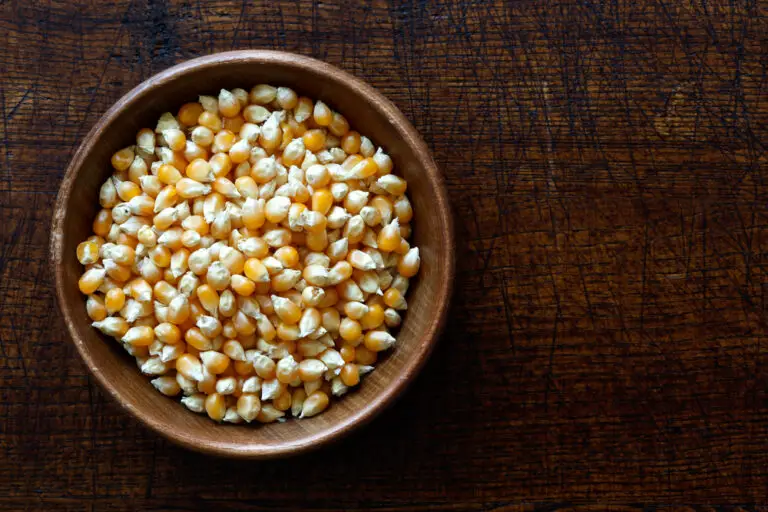Are you wearing braces and wondering which toothpaste is safe to use? While braces can help straighten your teeth and enhance your smile, they also require special care to maintain good oral hygiene. One of the most important aspects of this is using the right toothpaste.
It’s essential to avoid toothpaste that is too abrasive or contains ingredients that can damage your braces, such as whitening agents or baking soda. These can scratch the surface of your braces, making them more susceptible to bacteria buildup and discoloration. Additionally, some toothpaste may contain high levels of fluoride, which can cause white spots on your teeth if used excessively.
So, what kind of toothpaste can you not use with braces? In this article, we’ll explore the toothpaste ingredients you should avoid and recommend some safe alternatives. By following these guidelines, you can keep your braces clean and healthy, and ensure that your orthodontic treatment is a success.
Understanding Braces
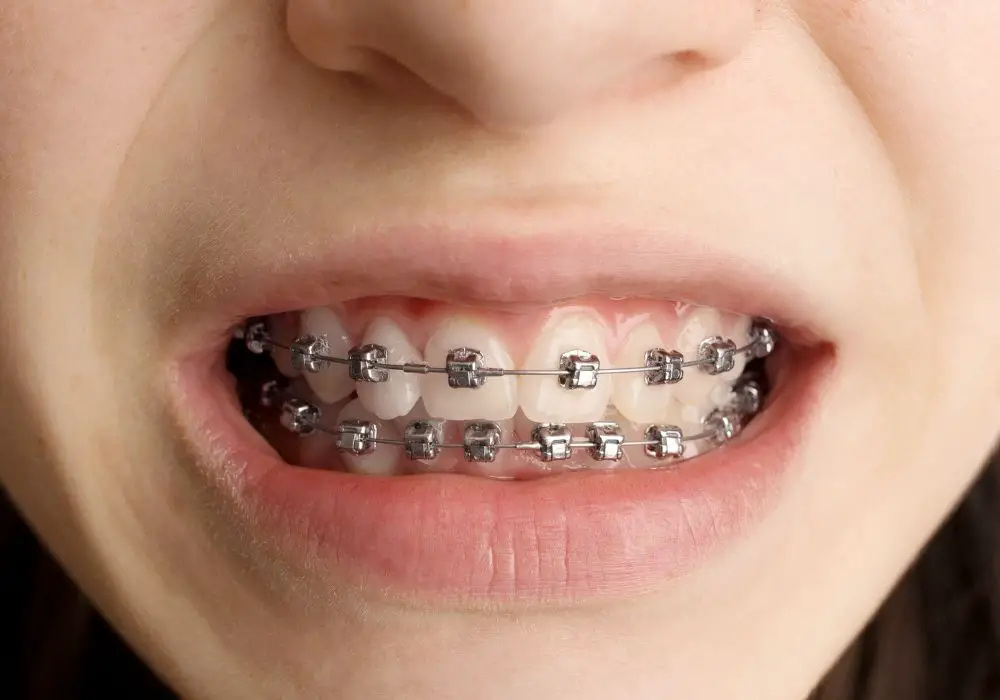
Getting braces is a big decision, but it’s one that can lead to a lifetime of healthy teeth and a confident smile. Braces work by applying gentle pressure to your teeth, moving them into the desired position over time. While they’re working their magic, it’s important to take good care of your teeth and gums to ensure the best possible outcome.
When you have braces, it’s important to use the right toothpaste to keep your teeth and braces clean and healthy. Some types of toothpaste can actually damage your braces or make it harder to keep them clean. Here are some things to keep in mind when choosing a toothpaste:
- Avoid toothpaste with abrasive particles or whitening agents. These can scratch the surface of your braces and make them look dull or discolored.
- Look for toothpaste with fluoride, which can help strengthen your teeth and prevent cavities.
- Consider using a toothpaste specifically designed for people with braces. These toothpastes often contain special ingredients that help remove plaque and food particles from around your brackets and wires.
Remember, even with the right toothpaste, it’s important to brush and floss regularly to keep your teeth and braces clean. Your orthodontist can give you more tips on how to care for your braces and keep your smile looking its best.
Types of Toothpaste
When you have braces, it’s important to choose the right toothpaste to keep your teeth and braces clean and healthy. Here are some types of toothpaste to consider:
Fluoride Toothpaste
Fluoride toothpaste is the most common type of toothpaste and is recommended by dentists for everyone, including those with braces. Fluoride helps to strengthen tooth enamel and prevent cavities. Look for a toothpaste that contains at least 1,000 parts per million (ppm) of fluoride.
Tartar Control Toothpaste
Tartar control toothpaste is designed to prevent the buildup of tartar, which can lead to gum disease. This type of toothpaste contains ingredients that help to break down and remove tartar from your teeth. However, it’s important to note that tartar control toothpaste can be abrasive and may damage your braces if used too often.
Whitening Toothpaste
Whitening toothpaste can help to remove surface stains from your teeth and make them appear brighter. However, it’s important to use caution when using whitening toothpaste with braces, as it can cause uneven whitening if the brackets and wires block the tooth surface.
Sensitive Teeth Toothpaste
If you have sensitive teeth, you may want to consider using a toothpaste designed for sensitive teeth. These types of toothpaste contain ingredients that help to reduce sensitivity and provide relief from pain caused by cold or hot foods and drinks.
Children’s Toothpaste
Children’s toothpaste is formulated specifically for kids and contains lower levels of fluoride than adult toothpaste. This is because children are more likely to swallow toothpaste and too much fluoride can be harmful. Children’s toothpaste also has a milder flavor and fewer abrasives to protect their developing teeth.
When choosing a toothpaste for braces, it’s important to consult with your orthodontist to ensure that it’s safe for use with your specific type of braces. Remember to brush your teeth at least twice a day with a fluoride toothpaste and floss daily to keep your teeth and braces clean and healthy.
Toothpastes to Avoid with Braces
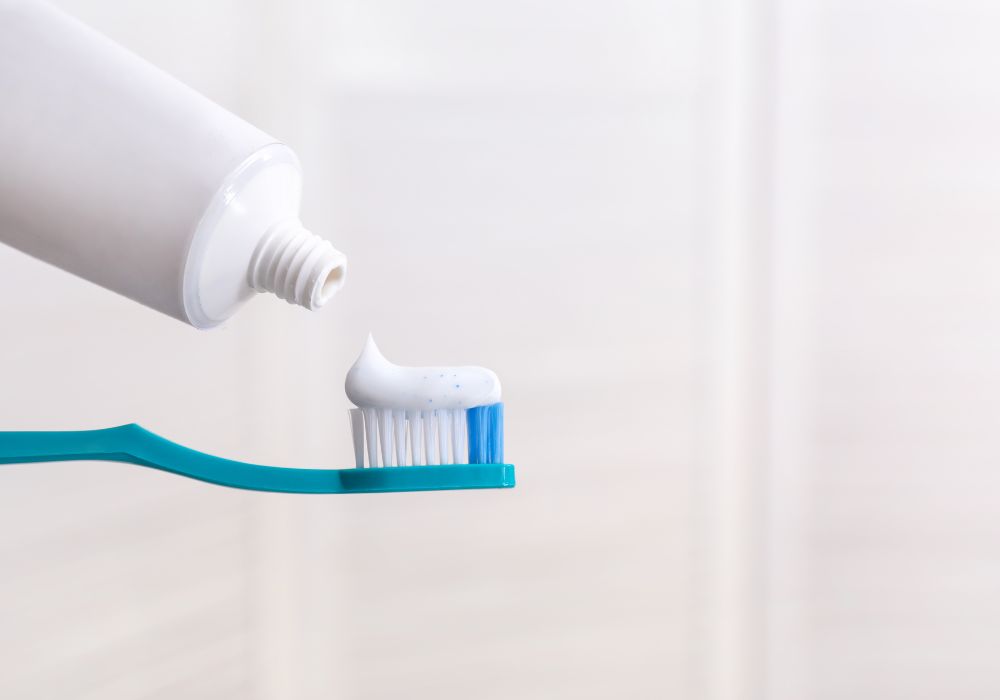
When you have braces, it’s important to choose the right toothpaste to avoid damaging your orthodontic appliances. Here are some toothpastes to avoid with braces:
Whitening Toothpastes
Whitening toothpaste may contain abrasive particles that can damage the brackets and wires of your braces. These toothpastes can also cause uneven whitening of your teeth, as the areas covered by the brackets will not be affected by the whitening agents. Therefore, it is best to avoid using whitening toothpaste while you have braces.
Abrasive Toothpastes
Some toothpastes contain abrasive particles that can scratch and damage the surface of your teeth, as well as your braces. This can lead to discoloration and weakening of your teeth. Avoid toothpastes that contain ingredients like baking soda, charcoal, or silica, as they can be too abrasive for your braces.
High Fluoride Toothpastes
Fluoride is an important ingredient in toothpaste that helps to prevent tooth decay. However, using a toothpaste with high levels of fluoride can be harmful to your teeth and braces. High fluoride toothpastes can cause white spots on your teeth, which can be difficult to remove. Therefore, it is best to use a toothpaste with a moderate amount of fluoride, or as recommended by your orthodontist.
In summary, choosing the right toothpaste is crucial when you have braces. Avoid using whitening toothpaste, abrasive toothpaste, and high fluoride toothpaste to prevent damage to your braces and maintain good oral health. Consult with your orthodontist or dentist to find the best toothpaste for your specific needs.
Toothpastes Safe for Braces
When you have braces, it is important to use the right toothpaste to keep your teeth and braces clean and healthy. Here are some toothpastes that are safe to use with braces:
Non-Whitening Toothpastes
Whitening toothpastes may contain harsh abrasives that can damage the enamel on your teeth and the surface of your braces. To avoid this, choose a non-whitening toothpaste that is gentle on your teeth and braces. Look for toothpastes that are specifically labeled as “non-whitening” or “gentle.”
Low Abrasiveness Toothpastes
Toothpastes that are too abrasive can scratch the surface of your braces and cause damage. Look for toothpastes that are low in abrasiveness to protect your braces and keep them looking their best. The American Dental Association (ADA) recommends choosing a toothpaste with a Relative Dentin Abrasivity (RDA) score of 250 or less.
Moderate Fluoride Toothpastes
Fluoride is an important ingredient in toothpaste that helps to prevent cavities and tooth decay. However, too much fluoride can cause white spots on your teeth, a condition called fluorosis. To avoid this, choose a toothpaste with a moderate amount of fluoride. The ADA recommends using a toothpaste with fluoride concentration between 1000 and 1500 parts per million (ppm).
Remember to brush your teeth and braces at least twice a day for two minutes each time, and to floss daily. Regular dental cleanings are also important to maintain good oral health while wearing braces. If you have any questions about which toothpaste is best for you, be sure to consult with your orthodontist or dentist.
Oral Hygiene with Braces
Taking care of your teeth with braces can be a bit challenging, but it is essential to maintain good oral hygiene during your orthodontic treatment. Here are some tips to help you keep your teeth clean and healthy while wearing braces.
Brushing Techniques
Brushing your teeth with braces requires a bit of extra effort and care. Here are some tips to help you brush your teeth effectively:
- Use a soft-bristled toothbrush to avoid damaging your braces or your gums.
- Brush your teeth for at least two minutes, twice a day.
- Angle your toothbrush at a 45-degree angle towards the gumline, and brush in circular motions.
- Brush the front, back, and chewing surfaces of each tooth.
- Brush around your brackets and wires, and use an interdental brush to clean between your brackets and wires.
Flossing with Braces
Flossing with braces can be challenging, but it is crucial to remove plaque and food particles from between your teeth and braces. Here are some tips to help you floss effectively:
- Use a floss threader or orthodontic floss to thread the floss under the wire of your braces.
- Gently slide the floss between your teeth and braces, and then move it up and down to remove plaque and food particles.
- Repeat the process for each tooth, and use a new section of floss for each tooth.
- Consider using a water flosser or interdental brush to clean between your brackets and wires.
Toothpaste for Braces
When it comes to choosing toothpaste for braces, look for a fluoride toothpaste that is gentle on your teeth and gums. Avoid toothpaste that contains abrasive particles or whitening agents, as they can damage your braces or cause sensitivity.
Here are some toothpaste brands that are safe to use with braces:
- Colgate
- Crest
- Sensodyne
- Aquafresh
Remember to brush your teeth for at least two minutes, twice a day, and to floss at least once a day to maintain good oral hygiene with braces.
Professional Recommendations
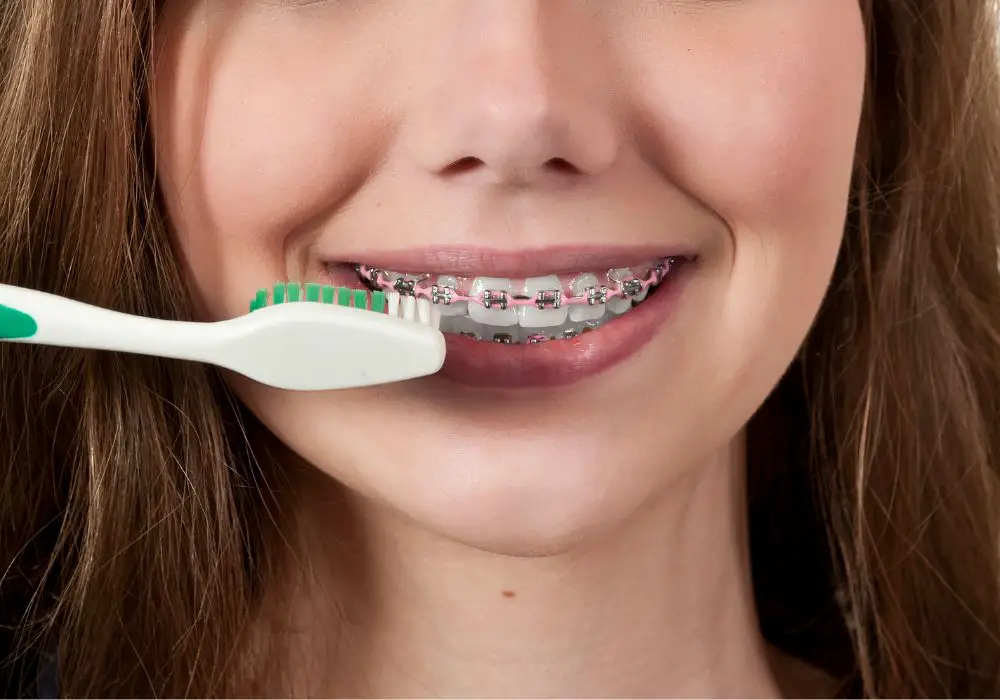
When it comes to taking care of your teeth with braces, it is important to follow the recommendations of dental professionals to ensure that you maintain good oral hygiene and avoid any complications. Here are some professional recommendations for choosing the right toothpaste to use with braces:
1. Look for a toothpaste with fluoride
Fluoride toothpaste is recommended for everyone, including those with braces. Fluoride helps to strengthen tooth enamel and prevent cavities, which can be especially important when wearing braces since food particles can easily get trapped in the brackets and wires.
2. Avoid whitening toothpaste
Whitening toothpaste is not recommended for use with braces. The abrasive particles in these products can damage the brackets and wires, leading to discoloration and even breakage. Instead, choose a toothpaste that is specifically formulated for braces or one that is gentle and non-abrasive.
3. Consider using a toothpaste with plaque defense
Plaque buildup can be a problem when wearing braces, so using a toothpaste that is formulated to fight plaque can be beneficial. Look for a toothpaste that contains ingredients like triclosan or zinc citrate, which can help to reduce plaque and prevent gum disease.
4. Choose a toothpaste with a taste you enjoy
While it may not seem like a big deal, choosing a toothpaste with a taste you like can make a big difference in how often you brush your teeth. If you enjoy the taste of your toothpaste, you may be more likely to brush regularly and maintain good oral hygiene.
By following these professional recommendations, you can choose a toothpaste that is safe and effective for use with braces. Remember to brush twice a day for two minutes each time, and to floss daily to keep your teeth and gums healthy.
Frequently Asked Questions
Can I use regular fluoride toothpaste with braces?
Yes, you can use regular fluoride toothpaste with braces. In fact, fluoride toothpaste is recommended to help prevent tooth decay and strengthen your teeth. However, it is important to brush carefully and thoroughly, making sure to clean around the brackets and wires of your braces.
What are the best toothpaste options for people with braces?
The best toothpaste options for people with braces are those that are fluoride-based and designed to remove plaque. Look for toothpaste that has a mild taste and is not abrasive, as abrasive toothpaste can damage the enamel on your teeth and the brackets on your braces.
Is Sensodyne Pronamel Daily Protection enamel toothpaste safe for braces?
Yes, Sensodyne Pronamel Daily Protection enamel toothpaste is safe for braces. It is a fluoride toothpaste that is designed to protect your enamel and is gentle on your braces. However, it is important to brush carefully and thoroughly, making sure to clean around the brackets and wires of your braces.
What toothpaste should be avoided when wearing braces?
Toothpaste that contains whitening agents or is abrasive should be avoided when wearing braces. Whitening toothpaste can cause uneven whitening of your teeth, as the areas covered by your braces will not be whitened. Abrasive toothpaste can damage the enamel on your teeth and the brackets on your braces.
Does toothpaste affect the brackets or wires of braces?
Toothpaste does not typically affect the brackets or wires of braces. However, it is important to brush carefully and thoroughly, making sure to clean around the brackets and wires of your braces. If you are concerned about the effect of toothpaste on your braces, talk to your orthodontist.
Is fluoride toothpaste bad for braces?
No, fluoride toothpaste is not bad for braces. In fact, fluoride toothpaste is recommended to help prevent tooth decay and strengthen your teeth. However, it is important to brush carefully and thoroughly, making sure to clean around the brackets and wires of your braces.


